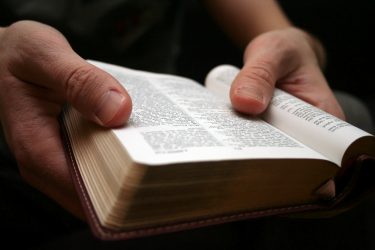The Jews did not practice cremation. Recorded instances of cremation were live, infant sacrifices offered to idols. These practices were abominations. Jeremiah 32:35, "..high places of Baal, which are in the valley of the son of Hinnom, to cause their sons and their daughters to pass through the fire unto Molech; which I commanded them not, neither came it into my mind, that they should do this abomination…",
There are no specific scriptures that forbid cremation of dead bodies. The Jews and countless other cultures have historically buried their dead in a tomb. Ancient heroes like Sarah, Abraham, Joseph, Moses, and David were all buried according to that tradition. So also, Jesus was laid in a tomb, according to Jewish law. They carefully followed proscribed anointing and burial practices because they hoped for a resurrection from the dead.
Matthew 5:21-22 refers to how the Sanhedrin supervised criminal trials and could impose the death sentence. Some of those found guilty were subjected to further indignity after death – being refused burial and cast into the fire of “Gehenna”. The valley of Gehenna (or Hinnom) was just outside the city of Jerusalem and served as the sewer and garbage burner for the city. Fires were continually burning and brimstone was added for combustion and complete destruction. Living things were NOT to be cast into the fire.
The ancient Greeks, Romans, Jains, and Hindus commonly practiced cremation. Christianity rejected cremation as a pagan ritual associated with human sacrifice by fire. In parts of Europe, cremation was forbidden by law. Alternatively, it was used by Christian authorities as a punishment for heretics. For example, John Wycliffe's body was exhumed years after his death and then cremated. His ashes were thrown in a river. The Roman Catholic clergy cremated him as a posthumous punishment for his denial of Roman Catholic doctrine.
Mass cremations have historically been performed out of fear of contagious diseases during times of battle, pestilence, or famine.
How a person’s human remains are managed is a personal choice. Ecclesiastes 9:5 teaches, “…the dead know nothing.” After Adam and Eve sinned, God declared, “You will eat bread by the sweat of your brow until you return to the ground, since you were taken from it. For you are dust, and you will return to dust.” Genesis 3:19. After death, the body decays whether it is placed in a tomb, buried under earth, burned, lost at sea, eaten by a wild animal, etc. The end result is the same.
Just as the penalty for original sin is certain death, a resurrection for all is also a certainty. Jesus promised in John 5:28-29, “the hour is coming, in the which all that are in the graves shall hear his voice, and shall come forth; they that have done good, unto the resurrection of life; and they that have done evil, unto the resurrection of judgment.” It doesn’t matter where or how a person’s remains were managed. All will be resurrected in Christ’s kingdom.












